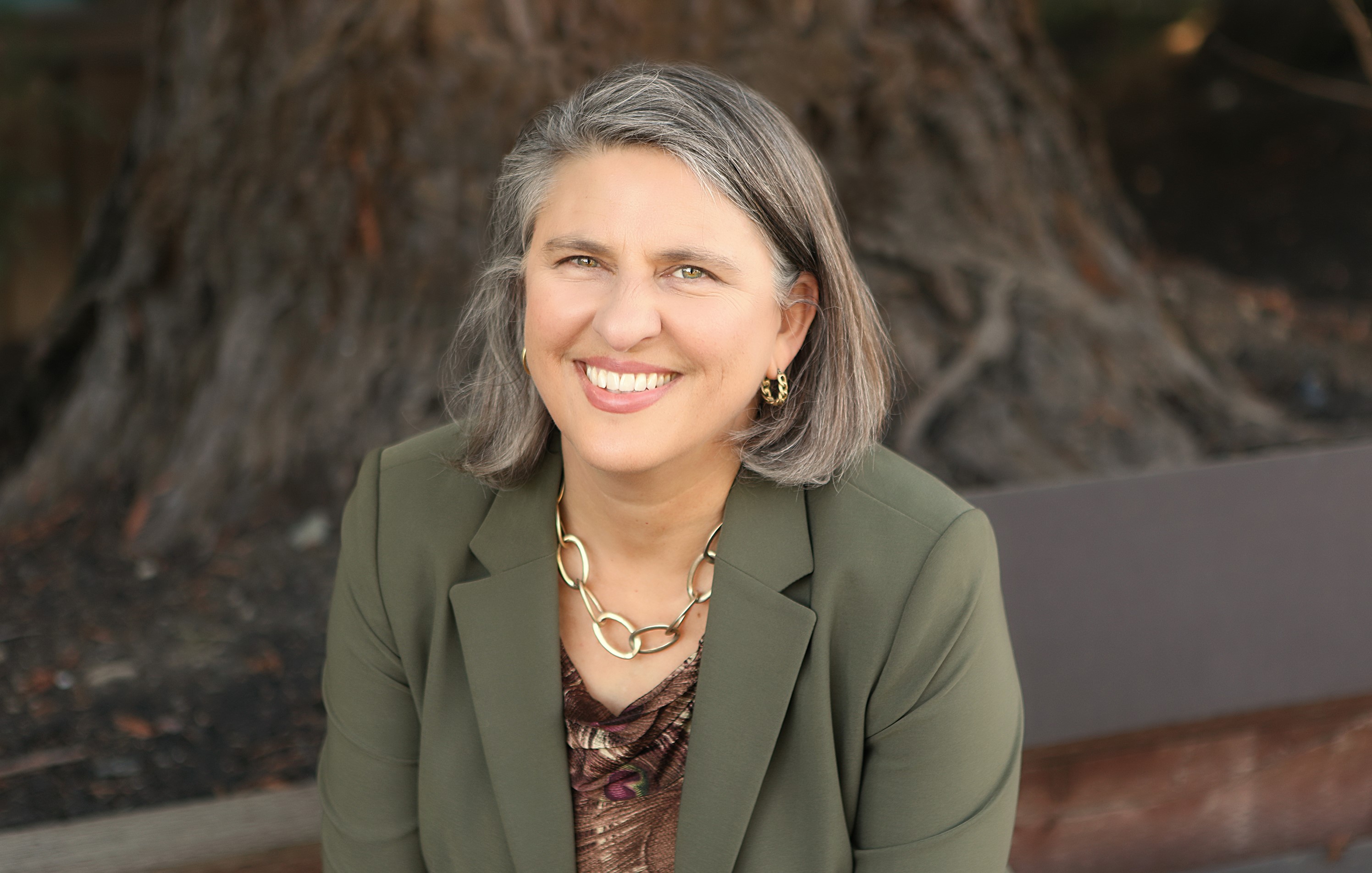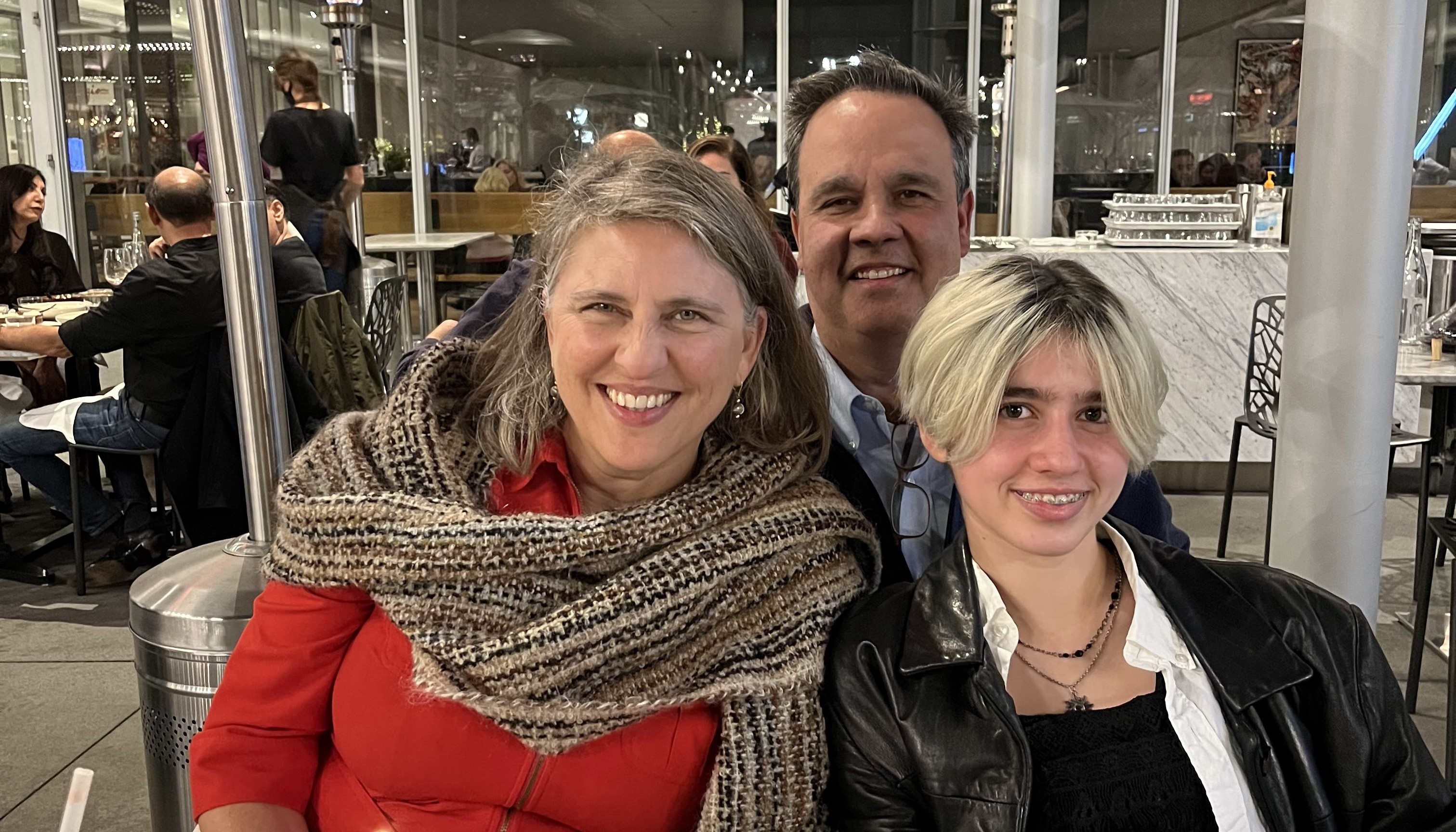Q&A With Incoming CAS Dean Edie Sparks
A historian by training, Sparks has extensive experience as both an academic and an administrator and comes to Suffolk from the University of the Pacific, where she currently serves as vice provost. She recently shared thoughts about her upcoming new role at Suffolk.
Q: Suffolk was founded over a century ago with a mission of “access and opportunity.” What does that mean to you, and how will you put that into practice in your role as dean of the College?
A: One of my core values is expanding access to higher education. This is the fire in my belly. As a historian I know that a college education is one of the greatest democratizing forces in United States history.
It’s a profound mission to ensure access for students who may have a variety of different barriers to completing a degree, who may not come from the same privilege, and might not have imagined themselves here. We need to make sure that we really do have open doors and broad access for students, then back that mission up with the kinds of support that Suffolk is obviously so committed to providing. Every student deserves the resources to make it all the way to the finish line — that is why I do what I do.

Q: Student success and retention have been areas of focus for you in your career. What opportunities do you see to help students thrive at Suffolk?
A: First, I can’t wait to meet the students. I have a profound understanding of how transformational access to education and completion of a college degree is, and I’m really passionate about helping students achieve that.
I plan to have conversations with faculty in every department, getting their insights and doing an inventory of what’s working well and what’s needed. It will be important to pay attention to what the data tells us about disparities in retention. We need to drill down, supporting students who have lower retention rates than others. I’m absolutely convinced that advising is a key factor in student satisfaction and a determinant in students succeeding and making it all the way to the end. What questions can we ask to make sure we’re delivering a relationship-based advising experience, so that students develop really meaningful mentoring relationships? Having strong connections with faculty advisors that go beyond the transactional business of scheduling courses and checking requirements makes a big difference.
Q: Your academic background includes undergraduate study in literature, as well as graduate and doctoral study in history. Why is a liberal arts education still important and relevant to students?
A: We need to prepare students for the changing world they’re facing. They need to know how to solve problems and interact with others, to work in teams, think critically, and communicate well. Those human skills are exactly what a liberal arts education prepares students to do.
Having such a diverse group of programs all housed in the College of Arts & Sciences creates opportunities for interdisciplinary learning and working with people from different backgrounds with different strengths. Both of those things are key to how we prepare future citizens of the world to address 21st century problems. We have an exciting opportunity to help students transfer everything that they’re doing in their arts and sciences curriculum into the work they’ll do as future leaders in their careers and communities. What an important moment to talk about the skills of engagement, and problem solving, and citizenship.
Q: Your books, Capital Intentions: Female Proprietors in San Francisco, 1850-1920, and Boss Lady: How Three Women Entrepreneurs Built Successful Big Businesses in the Mid-Twentieth Century, tell the often overlooked tales of trailblazing women entrepreneurs and business leaders. Why were you drawn to those stories?
A: I am fascinated by how women break into places where historically they “don't belong.” What is the process? What are the structures that make that possible? What are the market conditions that provide unique opportunities? And why did they want to do it?
Understanding historical conditions as precursors to our experience today is what fascinates me. I’ll never forget the first professional conference I went to as a graduate student. I looked around and I thought, Oh my God. This has been a male-dominated discipline. I was entering a profession where women had clearly been in the minority and had not yet reached parity. That was profound for me. I hadn’t realized that I was a trailblazer. So that became a lens for me, as well as watching my own mother navigate her career.
Q: How did the women you researched find ways to persevere in spaces that were traditionally closed to them?
A: They had to be creative. It’s fascinating to study how these women spotted and seized on opportunities in the marketplace. In San Francisco, for example, the gender imbalance that commenced with the gold rush created opportunities for women in the accommodations industry. At that time in history women were seen as superior homemakers. They traded on that belief to make money in restaurants and hospitality. Likewise, the women that I studied in the 20th century also had a gender dimension to what each of them did. They used gender in the way that they marketed themselves and their brands and businesses, leveraging stereotypical ideas about women to advance market share and their own success. They were persistent and resilient and fought to make a space for themselves where none existed before. I came away with so much interest, excitement, and respect for how they were able to twist and turn the limits that had been placed on them into strengths.
Q: How will you help advance DEI efforts within the College?
A: Ensuring a sense of belonging for every student is an essential component of advancing student success and increasing graduation rates and student retention. I’ll be looking for feedback from students about that regularly.
My view is that we’re not advancing diversity, equity, and inclusion until we’re having uncomfortable conversations. So I’ll ask everybody to be ready to be uncomfortable because that’s how we figure out where our implicit bias is influencing us to say things or behave in ways that we don’t realize alienate someone in our community. We need to have brave conversations. I’m hoping for partnership from everyone to really explore this topic and find all the places where we need to keep working hard. And students’ voices will be critical in that.
We know students are really positively influenced by seeing people like themselves in the institutions where they study, and it’s also important for so many of us in our own careers. When I think back to when I first stepped into an administrative leadership position as a young parent, I looked around and I thought, No one’s doing this. Is this even possible? We all need that example of someone who has done it before to emulate.
Q: As an academic leader you’ve shown a dedication to experiential education. What are your goals for building partnerships and creating real-world learning experiences for CAS students?
A: In partnership with the faculty, I want to create a core template for what a CAS degree provides each student in every single academic program. Experiential education, community engagement, the Boston experience — I’d like to see these elements at the core of every student’s educational experience, no matter their major.
One thing I’m really excited about is including students in curriculum development. They’re an untapped resource. So I want to bring them into the conversation, telling us what they want to see in their curriculum and their academic programs, giving feedback on proposals for changes to curriculum, and then helping us in a cycle of continuous improvement.
Q: The last two years have been challenging for so many. As you look ahead to your first year at Suffolk, how will you help CAS students, faculty, and staff build an even stronger community?
A: It’s important to lead with compassion, understanding how we’re all still carrying with us the dislocations, fears, and profound impacts of the pandemic and the racial reckoning that have happened and civil rights. I have two LGBTQ kids and it’s a hard time being a parent of a trans kid. What’s going on in the world has different impacts on different people in different ways, and leaders need to understand that.
I have a lot of optimism about the opportunities for CAS and Suffolk. Engaging in collaborative discussions, innovation, and creation are energizing for me and everyone I’ve ever worked with. Where would we like to be 10 years from now, five years from now, one year from now? It’s exciting to create that vision together. Our work ahead is to articulate a CAS strategic plan in alignment with the University’s strategic plan. Approaching that collaboratively has a lot of power to inspire everyone and energize us to move forward and get through the difficulties of the pandemic.
Taking inventory of what we learned from online course delivery will also be important, so we don’t lose the opportunity to grow from the insights that we gained. I’ll be looking to hear feedback from the faculty, staff, and students so we can incorporate that into the plans and vision for the future.
Q: You’ve studied cities as an academic. How does that color your view of Boston, and what excites you about the city as a place for students to work and learn?
A: I’m very excited about the two cities where Suffolk is located [Boston and Madrid]. We can use these locations as canvases on which to paint all kinds of new possibilities for students. I am impressed with the work that I see CAS faculty doing to bring the cities into the classroom — and the students and their own scholarship out into the cities.
Part of what’s interesting as a Californian coming to Boston is that the city prompts questions in a really unique way, and not just historical ones. The city is full of history, but also it’s a leader in the tech industry and a pioneer in healthcare. To be able to carve out learning opportunities with those dimensions of the Boston experience right outside our doors is fascinating.
Q: What is on your shortlist to check out once you arrive?
A: We want to really take advantage of things we could never do in California. I can’t wait to see the fall and experience the seasons. We’re great fans of museums and historic sites, so I’m really excited about taking advantage of all of those.
We’re avid readers, so I plan to seek out all the best independent bookstores in the area. And since my younger kid and I are fans of the Anne of Green Gables book series, now that we’re on the East Coast we can’t wait to take a trip to Prince Edward Island and explore eastern Canada [where the books are based].
And there’s one thing that’s essential to find right away to make Boston feel like home. My husband is a Cuban immigrant and we love Cuban food, so I’ll be grateful for any restaurant and market recommendations!

Media Contact
Greg Gatlin
Office of Public Affairs
617-573-8428
[email protected]



